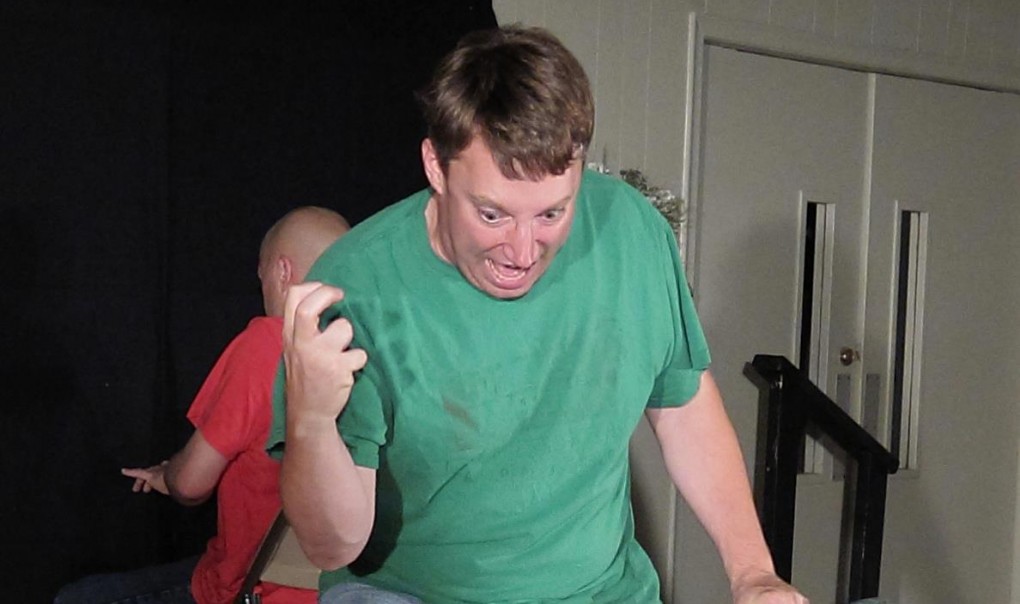Back in the distant 90s, there was a huge wave of crime films, mostly inspired by Quentin Tarantino. I remember sitting through trailers, wondering when I’d see one that didn’t involve guns. While it produced a good number of movies, most were quickly forgotten and the movement petered out. Lucky for us fans of fictional ne’er do wells, TV and comics picked up the ball and carried it into a golden age.
When it comes to TV, The Sopranos, The Wire, Boardwalk Empire, Justified, and Breaking Bad (among others) set the standard. At the same time, comics such as Stray Bullets, 100 Bullets, Jinx, Criminal, and procedurals like Gotham Central were breaking the same sort of ground, though they were met with much less fanfare across the pop culture landscape (they’re comics, after all). I enjoyed all those series quite a bit, but Scalped has stayed with me like no other.
The book was written by Jason Aaron with art by R.M Guera. It takes place on the fictional Prairie Rose Indian Reservation, populated by the non-fictional Lakota tribe. It’s the story of Dashiell Bad Horse, an angry, unpleasant local who has returned years after abandoning the place, just in time for the opening of the new Crazy Horse Casino. The casino is run by Lincoln Red Crow, who also happens to be the Tribal Council President and Sheriff of the Tribal Police. It’s also the community’s worst kept secret that he’s the reservation’s crime kingpin.
Red Crow has a soft spot for Dashiell, as he and Gina Bad Horse, Dashiell’s estranged mother, were both activists back in the day. They went their separate ways after the murder of two federal agents, with Gina sticking by the cause while Red Crow went down a more lucrative path. Dashiell quickly establishes a place for himself in Red Crow’s organization, which is exactly what was supposed to happen, as he’s actually an undercover FBI agent.
Dashiell has been blackmailed into this, as going home is the last thing he wants to do. He’s described by his boss, the unpleasant Agent Nitz, as a “borderline sociopath with deep-seated anger.” Nitz is one of the most thoroughly unlikable characters in the history of fiction. Takes one to know one, I guess.
One of the remarkable things about this book is how it transforms our view of Dashiell as things progress. For a little while, I was wondering if I even wanted to continue reading a story about a lead character I had so little empathy for. As his story was fleshed out, I found myself wanting very badly for him to turn out okay, and a little heartbroken when he steered in the wrong direction.
The book pulls this off with almost every character. I really can’t think of a one that didn’t turn my expectations for them on their head. Aaron and Guera play the long game, though that means it takes about two collections (around twelve issues) before things really get humming. Seriously, if you’re doubting your interest at the end of the first collection (Indian Country), just keep going.
Like all great long-form stories, the book expands well beyond its initial premise. It touches on the overall plight of Native American reservations (sometimes described as a third world nation inside out borders), the challenge of being an individual while still part of a community, the ramifications to your loved ones when you join a cause, and other big questions in an organic way. Nothing feels forced or preachy.
The book is a master class in dialogue, pacing, character development, and world-building. It avoids easy answers and out-of-nowhere plot tricks all the way to the end. It’s been picked up by WGN America as a live-action TV series (HBO really dropped the ball on not grabbing it), though I don’t know what stage of development it’s in right now. You should pick it up right away, as I can’t imagine a TV adaption, no matter how well it’s done, living up to the original.

